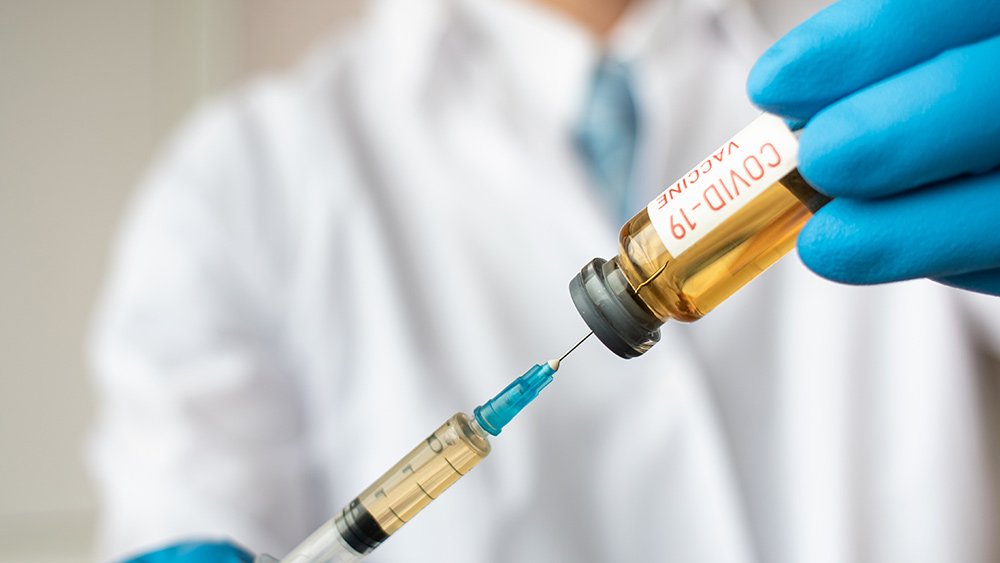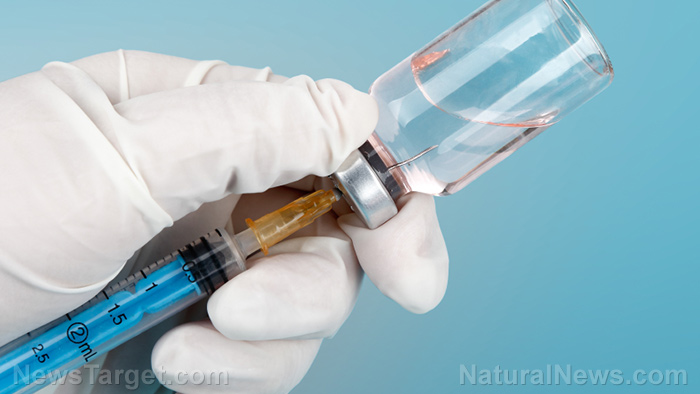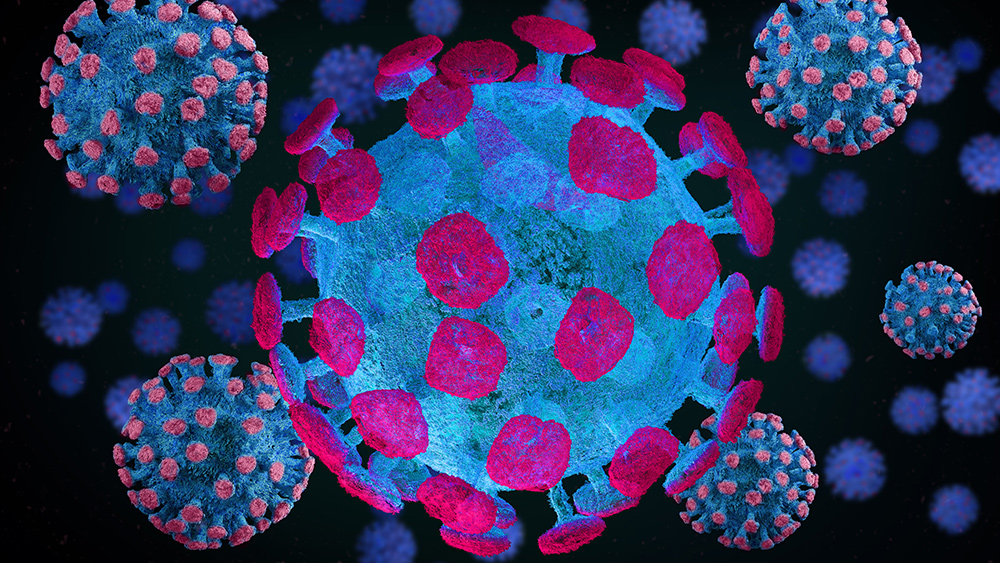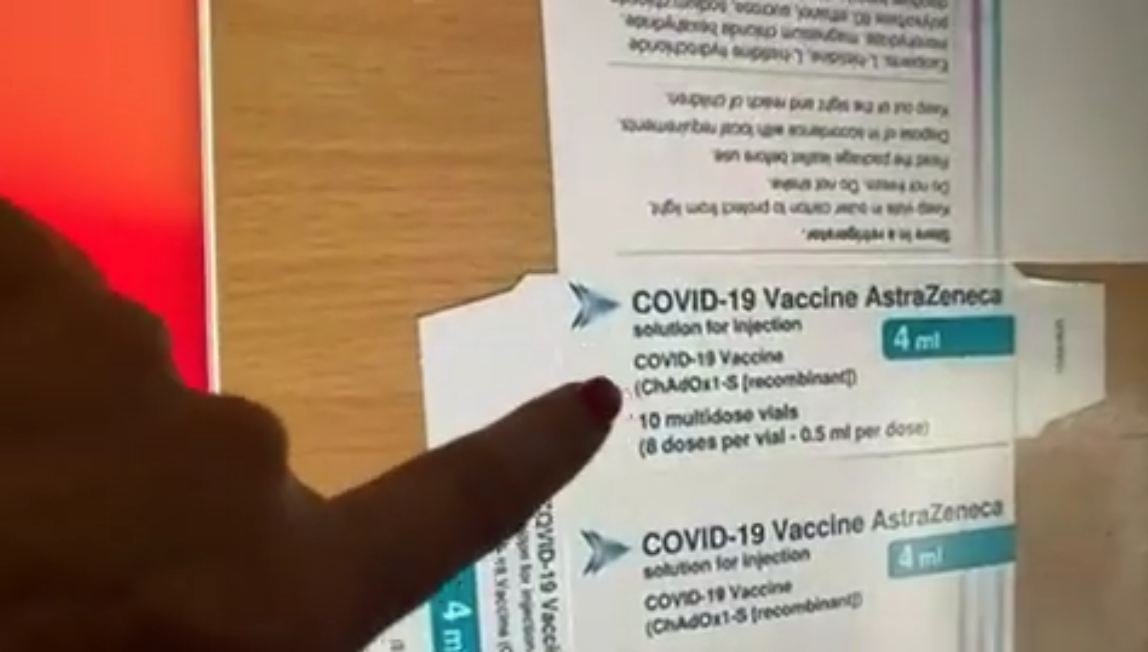AstraZeneca says “dosing error” resulted in boosted vaccine trial outcome, justifying claims of “90 percent effective”
11/28/2020 / By Ethan Huff

Arguably the worst performer in Big Pharma’s race to release a Wuhan coronavirus (Covid-19) vaccine is AstraZeneca, which somehow screwed up the dosage of its jab in human clinical trials, only to then claim that this “error” resulted in a better outcome.
Earlier in the week, we reported that AstraZeneca released two different results for its Covid-19 vaccine trial, one claiming 70 percent effectiveness and the other 90 percent. As it turns out, the higher percentage came from syringes that only contained half the amount of the vaccine.
The 70 percent figure for the full dose, by the way, was actually just 62 percent upon closer analysis. The 90 percent figure, meanwhile, came from an incorrect half dosage that was somehow administered to trial participants on accident, despite “rigorous” oversight.
Mene Pangalos, AstraZeneca’s head of non-oncology research and development, likened the mistake to a miracle, calling it “serendipitous” at a time when the company just so happened to need a little extra boost in the public relations department.
Pangalos told reporters that the error was a “stroke of good fortune” for AstraZeneca, as it magically boosted the efficacy results of its experimental Covid-19 vaccine by nearly 50 percent.
In other words, a mistake that never should have happened, seeing as how we are talking about experimental chemicals being injected into people’s bodies, miraculously bumped AstraZeneca’s trial results right up there with its competitors at Pfizer and Moderna, which have been hogging most of the spotlight.
“The reason we had the half-dose is serendipity,” Pangalos told Reuters with a straight face.
AstraZeneca claims serious adverse effects have only occurred in participants who received “placebo”
Back in late April when AstraZeneca had first partnered up with the University of Oxford to develop a vaccine, it was observed that those who received two full doses were developing fatigue-like symptoms.
Other participants were not experiencing these same symptoms, and upon analysis it was discovered – this is what we are being told, anyway – that the latter participants with milder symptoms had “accidentally” been given only half the allotted dose of the vaccine.
“So, we went back and checked … and we found out that they had underpredicted the dose of the vaccine by half,” Pangalos says.
Pangalos’ use of the word “underpredicted” in this context is a bit strange, as there is nothing to predict when administering what should have been a predetermined dose of the vaccine.
To act as though this was a simple mistake that conveniently produced an amazing outcome is nothing short of disconcerting. It just goes to show that AstraZeneca is highly untrustworthy, as are its vaccines.
Perhaps even more questionable is AstraZeneca’s claim that all serious adverse effects observed during the trial occurred exclusively in participants who received the “placebo” shot.
If we are to believe this shady company, then its experimental Covid-19 vaccine is really awesome, especially when given at only a half dose. It also never causes any harmful side effects, which only occur in people who do not receive the vaccine.
All of this is why SVB Leerink’s Geoffrey Porges called AstraZeneca’s data “hopelessly incomplete.” At best, this company is “embellishing” its results. At worst, it is completely making them up in an attempt to salvage its flailing reputation and maybe even rake in windfall profits.
“We can’t dose properly, but trust our chemistry in manufacturing this ‘vaccine’ is accurate,” joked one Zero Hedge commenter.
“I still don’t get how they know if it’s effective or not,” wrote another. “Say you take the vaccine … well, what if you just don’t catch Covid and it has nothing to do with the vaccine?”
If you are interested in reading more news about the Wuhan coronavirus (Covid-19), you can do so at Pandemic.news.
Sources for this article include:
Tagged Under: AstraZeneca, coronavirus, covid-19, deception, dosing error, efficacy, fake news, lies, outbreak, Oxford, pandemic, side effects, trial outcome, vaccine injury, vaccines
RECENT NEWS & ARTICLES
COPYRIGHT © 2017 VACCINE INJURY NEWS COM














